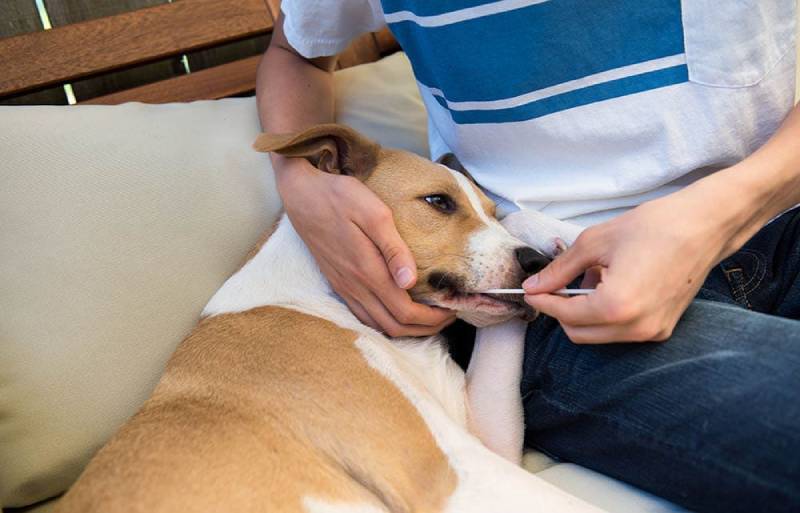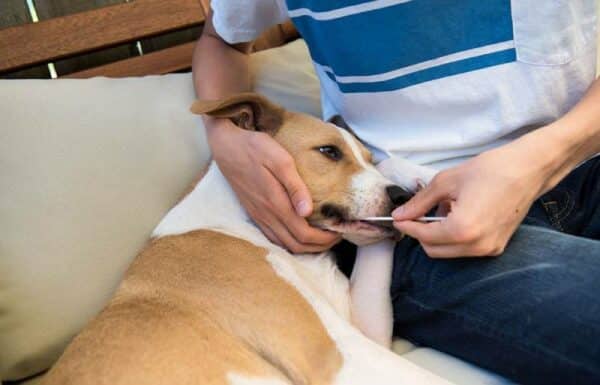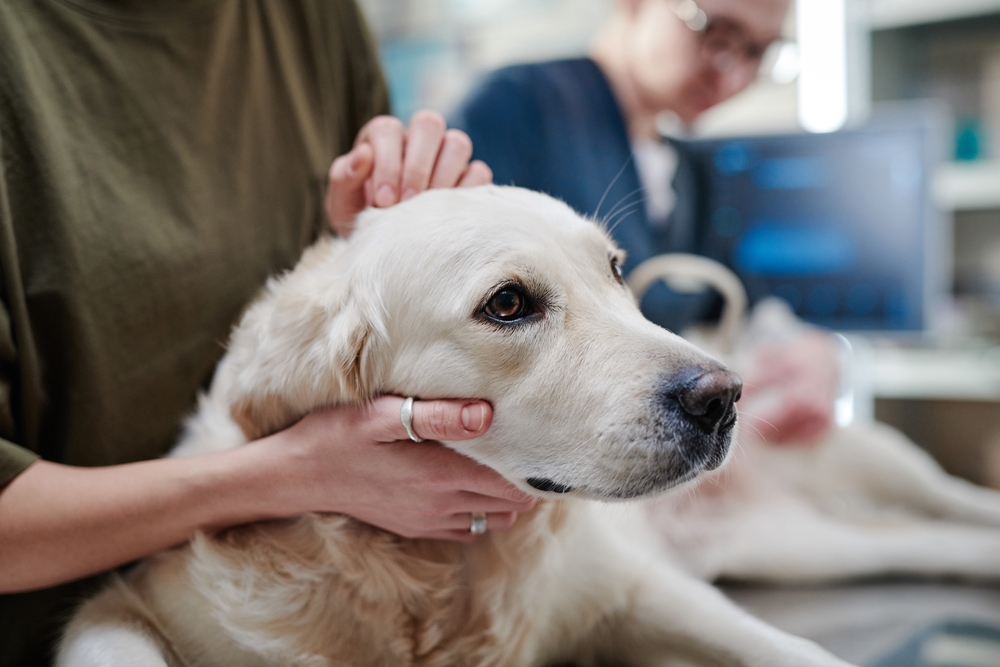If you have a mixed breed dog, chances are you’re at least a little curious about their heritage and what combination of breeds were blended to create your unique and awesome pet. You can probably make an educated guess based on your pup’s appearance, but if you are dying to know the real answer, a DNA test may be able to help. The question is whether these tests are accurate or not.
While DNA testing can provide insight into what may be in your dog’s DNA, we recommend taking the results with a pinch of salt. While testing may be accurate sometimes, this isn’t always the case and there are no guarantees of accuracy. Read on to learn more.
Is Dog DNA Testing Accurate?
That’s the million-dollar question, isn’t it? Many DNA testing manufacturers claim their kits are 90% accurate (or higher), though not all veterinarians or genetic experts are quite on board just yet. There isn’t much peer-reviewed research available regarding the processes used in these DNA test kits, and the kits aren’t regulated by the FDA. Therefore it is a case of choosing the company that suits your requirements best and going with the result you get. The accuracy relies largely on the size of the company’s database and how many DNA markers your pet’s sample can be compared to. The size of the database is usually on the test packaging as well as on the company’s website, so picking a company with a large database is one step towards increasing the accuracy of your result.
Without peer-reviewed publications that assess the accuracy of these tests, and because different companies use different methodologies, consumers are left to trust whatever the company says blindly.
Additionally, a study from 2021 found that some direct-to-consumer dog DNA testing companies may rely more on a photo of your dog than actual genetics.1 These companies require pet owners to upload a picture of their pet along with the DNA sample, a totally arbitrary requirement as photographs should not be necessary to test DNA.
There is also an element of user error that might affect the accuracy of the test. For example, a company might advise you to swab your dog’s mouth for 60 seconds. If you only manage to do this for 30 seconds, you may still get a result, but it might not be as accurate as it could have been.

Why Would I Want to Test My Dog’s DNA?
One of the biggest appeals of DNA testing is that knowing your dog’s breed could provide insights into how to handle your pet’s quirks. For example, finding out your dog has some Australian Cattle Dog in their DNA can shed light on behavioral issues as these dogs require a lot of physical activity. An Australian Cattle Dog not provided with the exercise they need to burn off excess energy can develop behavioral problems.
Additionally, knowing what’s in your dog’s DNA can uncover potential health risks. Some breeds are at risk of developing certain conditions, so being aware of what your pet may be susceptible to can help you better care for them.
However, it’s important to remember accuracy (or, rather, inaccuracy) when considering whether you want to get your dog’s DNA tested. What do you plan to do with the information you receive from your results? Genetic information can be a big contributor to the decisions you need to make for your dog’s health, and if the information provided by DNA test manufacturers is wrong or interpreted incorrectly, it can lead to unnecessary worry. Discuss any findings from a DNA test with your vet and never use the results to make medical decisions. It is vital to remember that a result that says your dog is at risk of a particular disease does not mean your dog is going to get that disease. In the same breath, a result that says your dog is not at risk of a disease doesn’t mean your dog is completely safe from that disease.

If you need to speak with a vet but can’t get to one, head over to PangoVet. It’s an online service where you can talk to a vet online and get the personalized advice you need for your pet — all at an affordable price!
What Is Required of Me to Test My Dog’s DNA?
You’ll first need to place an order for a DNA test. There are several companies available that currently offer this service, so be sure to weigh the pros and cons of each and check the pricing before placing your order.
Once your kit arrives in the mail, you’ll need to perform a cheek swab. Remove the tube from the package and, holding the tube end, swab the inside of your dog’s cheek for 30 to 60 seconds (depending on the instructions which you’ll need to follow closely). When finished, place the swab in the tube, close it, and shake it to mix. You’ll then return the sample to the company and wait a few weeks for the results.
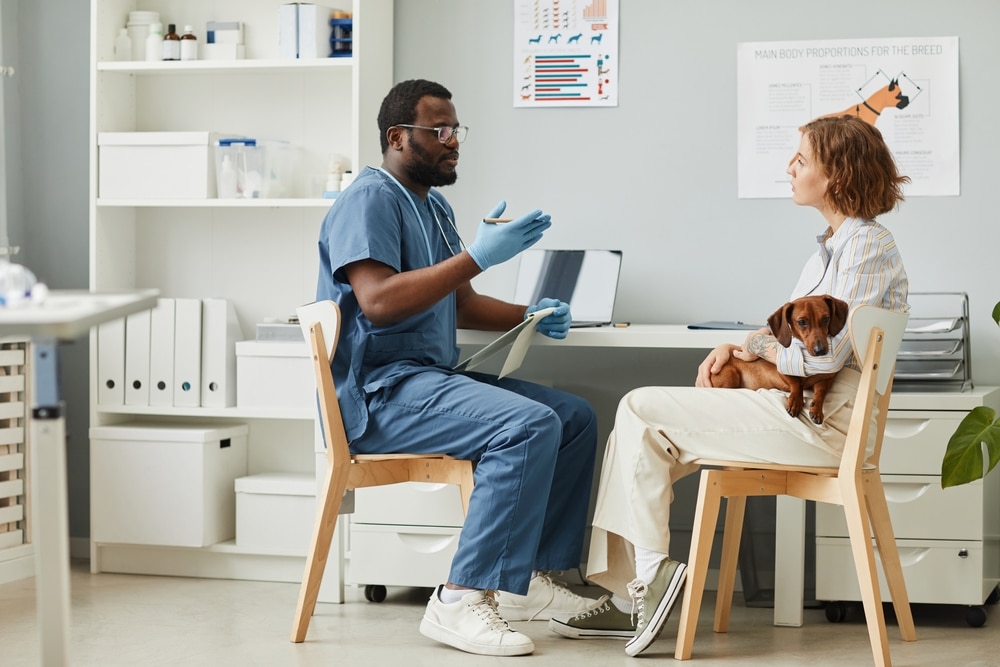
What Happens to the Swab?
The real science starts once your pet’s swab is in the hands of the company.
The first step is to separate the DNA that is contained within the cells collected from your swab. The DNA is kept in the nucleus of every single cell and this needs to be separated from the rest of the cell so that the DNA can be amplified. This means that millions of copies of the DNA will be made so that it can be analysed. The DNA is broken up into smaller sections called fragments which are then washed over an advanced canine microarray (a microscope slide that grabs DNA) to test over 230,000 genetic markers.2 Your dog’s DNA will bind to the DNA probes on the microarray and a fluorescent tag will then be added which will indicate what genetic variants your pup may have for each trait. When there is a DNA match, the spot on the microarray will light up green, red, or yellow. The color will depend on which variant your pup has for that given trait.
The colors are then translated into A, T, C, and G (which are the nucleobases that make up DNA) and put into a computer. Their ATCG sequences are compared to already analyzed canine DNA known as reference genomes. If your dog’s DNA matches, say, that of the German Shepherd reference genome, you’ll know that your pet has at least some German Shepherd in their ancestry.
DNA companies then use algorithms to determine what pieces of DNA code are inherited from specific breeds. Since DNA testing requires a reference database, the companies will be able to update your pet’s breed results as new findings come out or as their database grows.
Which Dog DNA Test Should I Buy?
There are several companies currently offering DNA testing for dogs, but some have a clear advantage over others. Before you click “Add to Cart”, consider the following factors:
- Your budget. The most basic DNA test starts at around $70, and pricing goes up markedly from there. You can pay as much as $300 for some of the more advanced kits.
- Test accuracy. Each DNA test manufacturer will have different accuracy for breed identification. Remember that there is no governing body over these tests, so the number the manufacturer provides can be entirely arbitrary.
- Breed reference database. The more reference genomes (dog data that scientists have already analyzed) a company has in their database, the more data your pup’s DNA can be compared to. The smaller databases will compare to around 95 breeds, while the biggest ones can compare to over 350.
- Health testing. Some kits also include health testing your dog’s DNA which may provide insight into genetic health conditions your pup may be at risk of.
- Turnaround time. While this shouldn’t be the deciding factor for you, if you’re impatient, you’ll want to choose a kit manufacturer that offers a faster turnaround time.
Now that you have an idea of what to shop for, here are some of the most popular dog DNA manufacturers right now.
- Wisdom Panel. Pricing starts at $84.99 for basic breed testing and goes up to $127.99 for the premium panel. The kit screens for over 365 breeds and numerous medical conditions. The results are emailed back in two to three weeks with detailed breed insights. The company claims to offer the world’s largest breed database.
- Embark. Pricing starts at $129 for basic breed testing. The results are emailed to you in two to four weeks. The test checks over 350 breeds and 250 genetic health risks. The company claims to have a 99% accuracy.
- DNA My Dog. Pricing starts at $79.99 for basic breed testing. This manufacturer’s website doesn’t give any idea of the accuracy of its tests. It claims to have a database of over 350 breeds and also to offer canine allergy testing.
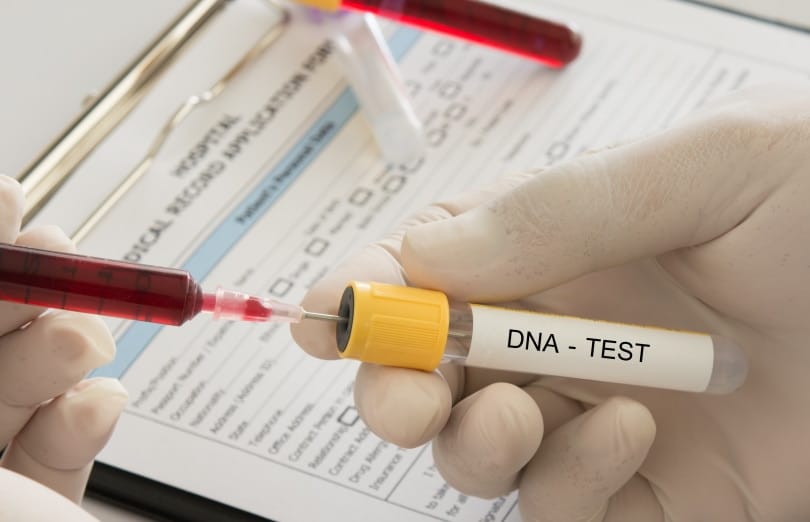
Final Thoughts
There are a variety of opinions on whether dog DNA testing is accurate or not. There are also debates as to whether knowing your dog is at risk of a particular disease without peer-reviewed techniques and regulated testing bodies is entirely ethical. How much can you trust the data to make decisions on your pet’s healthcare? At the moment, the advice is not to make any medical decisions based on these DNA results but to discuss the results with your veterinarian for more insight. However, if you have the spare funds to put toward getting your pet’s DNA tested just for fun, by all means, go for it. Remember to take the results with a grain of salt, however, as they may not be entirely accurate.
Featured Image Credit: Anna Hoychuk, Shutterstock

